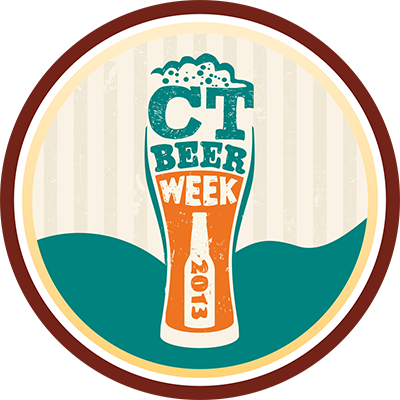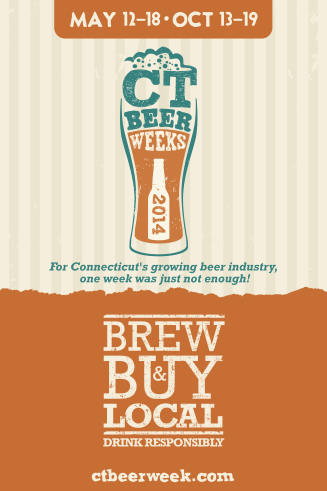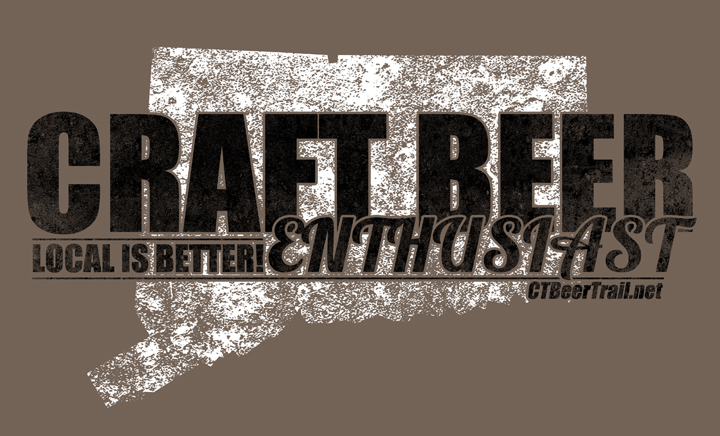In case you hadn’t heard, we're in the midst of the first annual Connecticut Beer Week, and the theme is “Brew and Buy Local.” The week-long promotion, a collaboration of events hosted by brewers, wholesalers, retailers and restaurants throughout Connecticut, seeks to draw attention – and customers - to microbreweries in the state that make specialty craft beers in numbers that are growing.
About 17 production breweries and more than 35 bars and restaurants are expected to participate during the week, with events that include brewery bus tours, beer tastings and live music performances. The local events coincide with American Craft Beer Week. Connecticut beer manufacturers, distributors and retailers are highlighting the state's growing craft beer industry and encouraging consumers to buy local brews.
One of them, Willimantic Brewing Co,. has served home-brewed beer since 1997 in a renovated post office building. It produces about 800 barrels of beer annually and runs beer dinners and other events to educate customers, the Associate Press reported.
About 2,300 craft breweries operate in the U.S., according to the Colorado-based Brewers Association. About half are brewpubs, which brew and sell beer on location, and the other half are microbreweries that are usually restricted from selling retail. The association defines a craft brewe ry as a facility that produces 6 million barrels or less of beer annually, is independently owned and uses traditional ingredients.
ry as a facility that produces 6 million barrels or less of beer annually, is independently owned and uses traditional ingredients.
A $2-per-barrel reduction in the federal excise tax on beer, from $9 to $7, set off the revolution in American "craft" beer that began in 1976 and led to a surge in the number of U.S. breweries, which at the time numbered only a couple of dozen, the Wall Street Journal reported. The tax cut, pushed by a coalition of brewers and labor unions, was enacted just as popularity was soaring for hobbyists' home-brewing clubs, which produced Sierra Nevada and Dogfish Head, among a growing roster.
Earlier this year, a report by the National Beer Wholesalers Association (NBWA) highlighted the overall economic impact of the beer industry in Connecticut:
- Connecticut beer distributors directly employ 1,084 people.
- When the impacts of Connecticut distributor operations, capital investment and community involvement are considered, the total number of impact jobs is 3,013.
- Connecticut beer distributors generate $545 million in total economic impacts.
- Connecticut beer distributor activities contribute $126 million to the federal, state and local tax bases. This does not include an added $97 million in federal, state and local alcohol excise and consumption taxes on beer sold in Connecticut.
- The Connecticut beer distribution industry contributes more than $303 million in transportation efficiencies for the beer industry each year.
- Beer distributor contributions to local community activities generate $1.5 million in impacts annually.
Microbrewers in the state benefit from the local and organic food movements that have seen increasing sales around the nation. Jason McClellan, owner of Olde Burnside Brewing Co. in East Hartford, told the AP that he buys many ingredients in-state. State government regulates the production and sale of alcohol at brewpubs and microbreweries.
The state is also supporting the industry as an economic driver A 2011 law established the Connecticut Brewery Trail, which permits authorized beer manufacturers and retailers to display signs advertising their association with the trail. It’s intended to make residents aware of what's available in their own backyard and to inform out-of-state travelers about the state’s home-grow beers. Road signs for the brewery trail have not been erected yet, but the information is available online. The breweries include:
 s coming up during the week of May 12 – 18, the same week as American Craft Beer Week. The second one is slated for October 14-20, and coincides with CT Restaurant week. Consumers are asked to “join us as we celebrate the growth of an industry in partnership with craft brewers, restaurants and retailers.”
s coming up during the week of May 12 – 18, the same week as American Craft Beer Week. The second one is slated for October 14-20, and coincides with CT Restaurant week. Consumers are asked to “join us as we celebrate the growth of an industry in partnership with craft brewers, restaurants and retailers.”

































